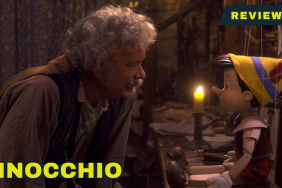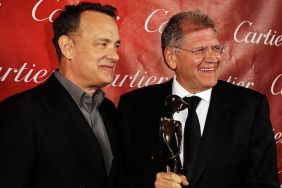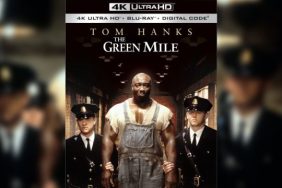
7 out of 10
Cast:
Tom Hanks as Chesley “Sully” Sullenberger
Aaron Eckhart as Jeff Skiles
Laura Linney as Lorraine Sullenberger
Anna Gunn as Dr. Elizabeth Davis
Autumn Reeser as Tess Soza
Holt McCallany as Mike Cleary
Mike O’Malley as Charles Porter
Jamey Sheridan as Ben Edwards
Jerry Ferrara as Michael Delaney
Molly Hagan as Doreen Welsh
Max Adler as Jimmy Stefanik
Sam Huntington as Jeff Kolodjay
Wayne Bastrup as Brian Kelly
Valerie Mahaffey as Diane Higgins
Jeff Kober as L. T. Cook
Katie Couric as herself
Directed by Clint Eastwood
Sully Review:
It was a bit more than a century ago that Teddy Roosevelt wrote of the importance of the man in the arena as opposed to “the man who points out how the strong man stumbles, or where the doer of deeds could have done them better.” It was not a particularly new idea at the time he said it, but it has, if anything, become more firmly ensconced in the American psyche since then.
That there is an eternal struggle going on between everyday (usually middle class) working types and a faceless bureaucracy which exists primarily to make those lives more difficult. It’s potent story of modern life and one which has attracted many people over the years, not least because frequently it proves to be (at least partially) true. Which gives us Clint Eastwood’s dramatization of the events surrounding the crash of US Airways Flight 1549 which is only tangentially concerned with the actual crash.
A decorated and experienced pilot with four decades of flying under his belt, Chesley ‘Sully’ Sullenberger (Hanks) is just the person you want at the controls if your plane were to be hit by birds and forced to land in a river. Rather than spend its time looking only at the events of January 15, 2009, Sully focuses its attention instead on the microscope Sully and his co-pilot (Eckhart) were placed under as a result.
The microscope of the national press, of the NTSB investigation looking into the crash and of their own reflections on the events. Rather than build to the famous water landing (and recognizing the difficulty of creating drama from a well-known event) Eastwood starts with it and flashes to it in bits and pieces throughout the film before finally assembling them. They form a touchstone for him to approach his true purpose from: exploring how the mechanics of social organizations (especially bureaucratic ones) can undermine even the most momentous endeavor and what that does to the individuals involved.
The spotlight Sully is placed under is not just a national one for a media always obsessed with a good hero story, but also a NTSB investigation tasked with determining if Sully made the right call. Eastwood directly casts Sully as the ‘man in the arena’ and criticizes anyone who would question him.
By showing the heroics performed that day primarily as the actions of skilled professionals doing their jobs, he recasts uncaring questioning of them as a direct assault on the middle class. In this, Hanks – who has built his entire career on embodying middle-class decency – proves a perfect alter-ego for Eastwood. Avoiding flashiness whether he is crashing in the river or suffering from post-traumatic stress, he creates the most difficult kind of performance to appreciate: the low-key realistic one. Eckhart makes a solid counterpart and their scenes together, particularly in the cockpit of the plane, are among Sully’s best.
As impressive as how well Eastwood underplays the crash itself, avoiding easy melodrama in favor of stark realism. Like his recreation of the raising of the flag on Iwo Jima or the 2004 tsunami, Eastwood refuses to romanticize, creating an almost documentary feel (though much cleaner than any documentary under the hands of cinematographer Tom Stern).
He also refuses to use the crash as an easy drama point, exploring the shifting nature of memory as the events of the day are shown in snippets (and not always in chronological order), and building to their eventual recreation during the final NTSB hearing where his themes are baldly stated for everyone to hear. Human systems (like governments but also the media) try to remove the human element from life and in the process completely miss the point of everything.
Also by relying on the memory of the event rather than simply recreating it, Eastwood can show what all the simulations cannot – what would have happened if Sully had tried to return to the airport. It’s a scenario which replays constantly through Sully’s head as he tries to come to terms with what has happened to him, his entire life distilled to decisions he had to make, good or ill, in just 208 seconds.
In the process, Eastwood reminds us of the end-result of extreme devotion to systems, using the imagery of the 9/11 attacks and casting Sully’s water landing as almost a cathartic counterpoint – New York comes together in adversity again, but this time everyone makes it.
It’s a skillful and admirable endeavor, but also a very shallow one, with little room for any of the human factor it espouses beyond Hanks and Eckhart. The lives of the passengers and some of the people around Sully are touched on, but only touched on. It’s also reductive in the way media almost always is even when it tries not to be. But it also reminds how good a director Eastwood can be and more importantly how rare this particular type of filmmaking is becoming, and for that it most certainly has its place.









